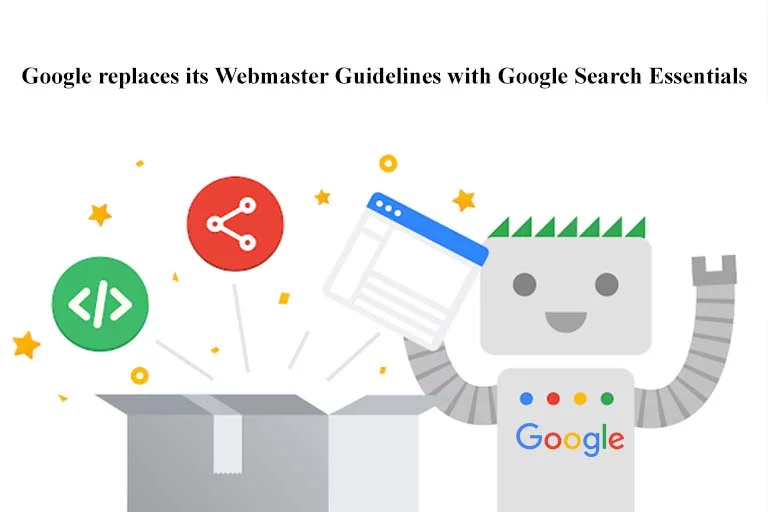Google Webmaster Tools is a set of Search Engine Optimization (SEO) tools from Google that will assist you in managing your site in Google Search results. They are now grouped and placed within Google Search Console and give the data your firm requires to rank higher in search. ‘Google replaces Webmaster Guidelines’ for all site owners and SEO specialists 20 years ago, providing an overview of best practices for developing a site.
Since then, Google has added a lot of information to these recommendations to assist site owners in constructing the right site for their Google Search essentials. Time-to-time, Google regularly changes the rules’ content, allowing many SEO experts to follow the Google search essentials guide. As a result, Google’s Webmaster Guidelines have rebranded ‘Google Search Essentials.’
Google Search Essentials
The Google Search Essentials are the fundamental components of what qualifies your web-based content (web pages, photos, videos, or other publicly available information found on the web) to display and perform effectively in Google Search:
- Technical requirements: What Google requires from a web page to display in Google Search.
- Spam policies: The actions and strategies that can result in a lower ranking or complete removal from Google Search results.
- Essential recommended practices: The primary factors might influence your website’s appearance in Google search results.
Contrary to popular belief, appearing in Google Search results is completely free. Simply because a page fulfills all of these standards and best practices, it is vital to remember that Google will not crawl, index, or deliver its content.
Technical requirements
The technical requirements cover the very minimum that Google Search essentials of a web page to display in search results. There are relatively few technological requirements for a web page; most sites meet the technical criteria without recognizing it.
Spam Policies
Spam regulations describe the actions and methods that might cause a page or an entire site to be ranked lower or removed from Google Search. Google replaces Webmaster Guidelines focuses on offering the most excellent content and experience for people while adhering to our values are more likely to rank high in Google Search results.
Key Best Practices
While there are several ways to boost your site’s SEO, there are a few key strategies that can have the most influence on your online content’s ranking and presence in Google Search:
- Create content that is useful, trustworthy, and centered on people.
- Use phrases that people would use to find your material, and put them in prominent places on the website, such as the title and main header of a page, as well as other descriptive sites like alt text and link text.
- Make your links crawlable so that Google may locate additional pages on your site using your page’s links.
- Inform people about your website.
- Participate in communities where you may inform like-minded people about the services and goods you mention on your website.
- If you have additional material on your websites, such as photos, videos, structured data, or JavaScript, ensure you’re following best practices for those elements so that we can also comprehend them.
- Enhance your site’s visibility on Google Search by activating characteristics relevant to your location.
- Use the proper approach for managing how your material appears in Google Search if you have a matter misplaced in search results or if you wish to opt out entirely.
What is the most recent update to Google Search Essentials?
Here’s a rundown of what’s changed.
Name Change
Google Search Essentials has replaced Google Webmaster Guidelines because, well, Google doesn’t think webmaster is a popular term these days, and it is too narrowly focused; this is comparable to how Google discontinued the Webmaster Tools for Search Console in 2015.
Technical Requirements
Google has added a new section to its website to assist users in understanding how to publish material in a style that Google Search can index and retrieve.
Spam Policies
Google has changed its spam policy advice to “assist site owners in avoiding posting information that isn’t useful for people using Search,” according to Google. Most of the content in these spam policies was already available on Google Search Central. According to the company, Google made a few additions to provide more precise guidance and concrete examples for issues such as deceptive behavior, link spam, online harassment, scam, and fraud.
Key Best Practices
Google has also issued guidelines with essential best practices that individuals may consider when establishing sites to generate content that serves people and helps a site be found more easily through Google Search.

